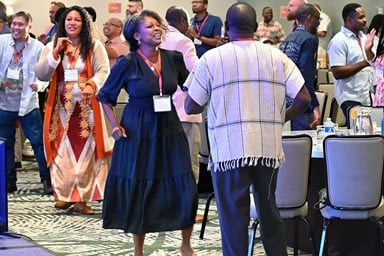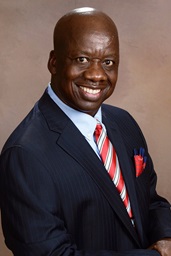Real progress on racial issues in The United Methodist Church is impossible unless LGBTQ people are accepted as full participants in every aspect of the denomination, said both panelists during a sometimes emotional online discussion.
“You can’t begin to have a conversation about anti-racist work as long as there is this conversation about splitting the church over sexuality issues,” said Miguel A. De La Torre, professor of social ethics at Iliff School of Theology, during the Oct. 28 discussion. “If our queer brothers and sisters are not part of the liberationist movement, we cannot have any type of church that’s anti-racist.”
United Methodists have been torn over human sexuality issues for decades and are moving toward a spilt because of it. That possibility has been forestalled because the COVID-19 pandemic has forced the denomination’s General Conference meeting to be delayed until late summer of 2021.
The series of online forums about dismantling racism is being presented by the United Methodist Commission on Religion and Race, in partnership with the Council of Bishops, United Methodist Women, the United Methodist Board of Church and Society and United Methodist Communications.
Previous events have focused on topics including voter suppression and the roots of racism and colonialism. The latest episode was centered on intersectionality, or the ways in which systems of power operate in multiple ways at the same time.
“We tend to be very insular, very siloed in the approach, like we can only deal with one group and their issues,” said moderator Erin Hawkins, former top executive of the United Methodist Commission on Religion and Race and currently executive director of Connectional Ministries for the California-Pacific Conference.
“The tactic of keeping these matters siloed is the function of the system of white supremacy,” she said.
Also participating in the discussion was the Rev. Traci West, a United Methodist and professor of Christian ethics and African American studies at Drew University Theological School. She sharply criticized United Methodist bishops for trying to address racism without going after other forms of oppression.
“At worst, it is a reinforcement of the most deepest form of religious and Christian violence against LGBTQIA+ peoples who are Black, who are Latinx, who are Asian, who are African, who are Russian, who are across the connection and whose equal human worth has been denied structurally by the church,” said West.
Groups that have much in common are being pitted against each other, De La Torre said. He described a conversation with a group of white people who asked him if the Black Lives Matter movement excludes Latinx people.
“What they were interested in was for me to get into an argument with the African American community … and create that division among groups that really have much more in common and solidarity.
“My response was, ‘No, my Latino life will not matter until Black lives matter.’ It’s intersectional. The success of the current power structures is to have kept us divided and to be fighting, literally, for the scraps that fall from the master’s table.”
Even attempts of predominantly white churches to attract minorities and move toward multicultural ministries are suspect because only some minorities are wanted, and those are usually expected to change themselves to suit whites, the two panelists agreed. The Black people sought by white churches are upper middle class, “the kind of Black people (they) could go to a cocktail party with,” De La Torre said.
“There’s a class element to our attempt to be inclusive,” he said, adding that low-income Black people are usually not desirable members for white churches.
Even if middle-class Black people make the move, it only damages Black churches who need the contributions of wealthier Blacks, he said.
Black people often find themselves competing for the “dominant white gaze,” West said.
“Ultimately that large, dominant power you’re trying to please and you’re competing and edging other people out for becomes your God,” West said. “You understand your whole worth and the communal worth of others that surround you in relationship to that dominant white God.”
De La Torre said white churches many times, “want to have the trappings of being open and inclusive, but they’re just trappings.”
He added: “If you are inviting me to your church, you’re not inviting me to be the token Latino to show that you’re not racist. You are inviting me to radically change how you do church. If you’re not willing to have my input on how you do church, then don’t invite me.
“Don’t waste my time.”
Patterson is a UM News reporter in Nashville, Tennessee. Contact him at 615-742-5470 or [email protected]. To read more United Methodist news, subscribe to the free Daily or Weekly Digests.
Like what you're reading? Support the ministry of UM News! Your support ensures the latest denominational news, dynamic stories and informative articles will continue to connect our global community. Make a tax-deductible donation at ResourceUMC.org/GiveUMCom.



